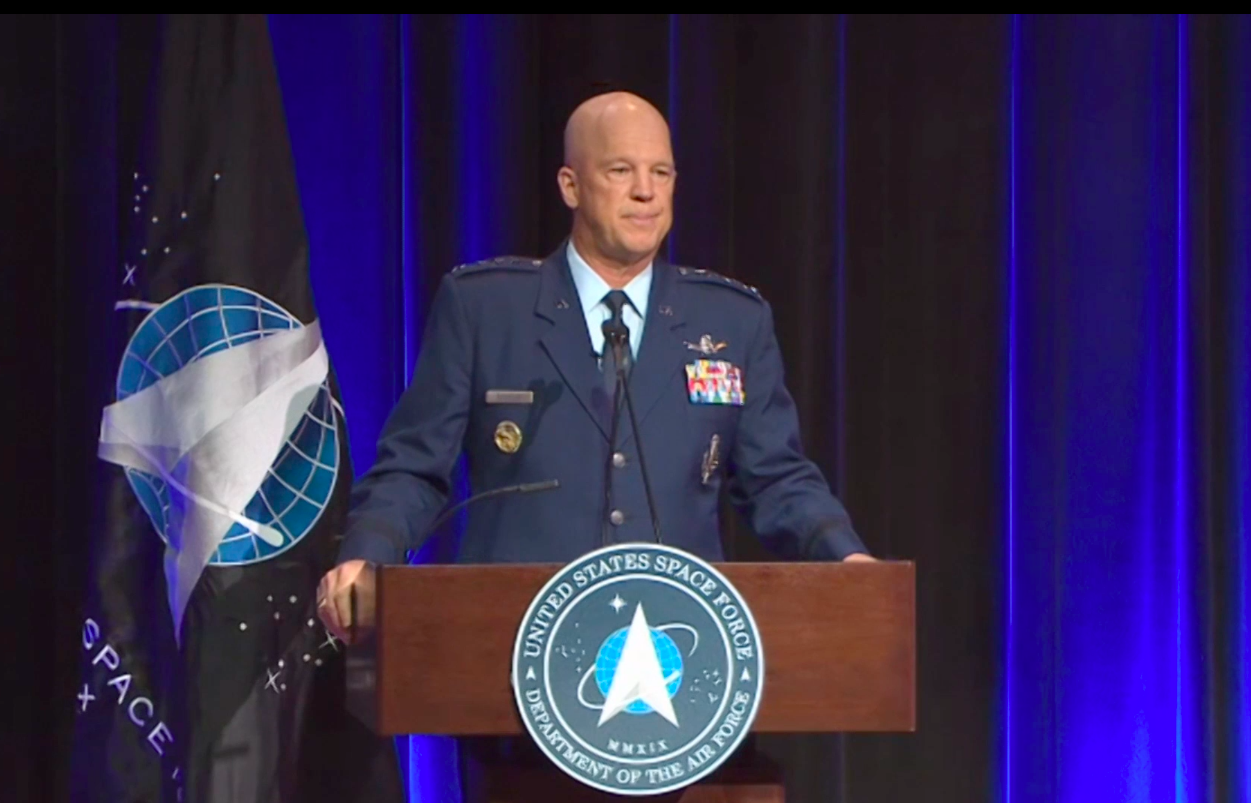Raymond: “One of the really big issues is the dollars that are transferring from the Air Force to the Space Force that can’t officially move over in a CR.”
WASHINGTON — Congress is expected to pass a continuing resolution to fund the federal government when the new fiscal year begins Oct. 1. An extended CR that spans into next year would be problematic for the U.S. Space Force because all its money is in the Air Force’s budget and could not be transferred until Congress passes a full-year appropriation bill.
“A long-term CR won’t be good for our service,” the head of the U.S. Space Force Gen. John “Jay” Raymond said Sept. 15.
Raymond and Air Force leaders spoke with reporters by video conference from the Pentagon during the Air Force Association’s virtual Air Space Cyber Conference.
Raymond said he worries that billions of dollars that were supposed to be moved from the Air Force’s budget to the Space Force will not transfer during a CR, complicating the service’s ability to fund operations and programs.
The money that has to be transferred includes $2.6 billion for operations and maintenance, $77 million for emergency war spending, $10.3 billion for research, development, testing and evaluation, and $2.2 billion for procurement.
The Trump administration and congressional leaders are negotiating the terms of a continuing resolution to avert a government shutdown. The CR would fund the government at 2020 levels until Congress passes a full appropriation bill for fiscal year 2021.
“One of the really big issues is the dollars that are transferring from the Air Force to the Space Force that can’t officially move over in a CR,” said Raymond.
The White House earlier this month submitted to Congress a list of items known as “anomalies” that it wants Congress to address in the CR. One of the anomalies is the funding for the U.S. Space Force.
Raymond said it would be helpful for Congress to address those anomalies. If lawmakers don’t approve the transfer of funds, the Space Force would still be able to operate and move forward with existing programs although it would have to deal with the accounting headaches of switching accounts mid-year or whenever a final appropriation bill is passed.
Under a CR, federal agencies can continue on with existing projects but cannot start new programs. For the Space Force, two major programs that would be delayed under a CR are the procurement of new GPS satellites and upgrades to the National Space Defense Center at Schriever Air Force Base in Colorado Springs.
Raymond said he worries about both these projects being pushed back by the CR.
The Space Force’s 2021 budget includes $628 million to acquire two GPS 3F (GPS 3 Follow-on) satellites, and $88 million for upgrades to the National Space Defense Center, a space operations hub that U.S. Space Command shares with the National Reconnaissance Office.
